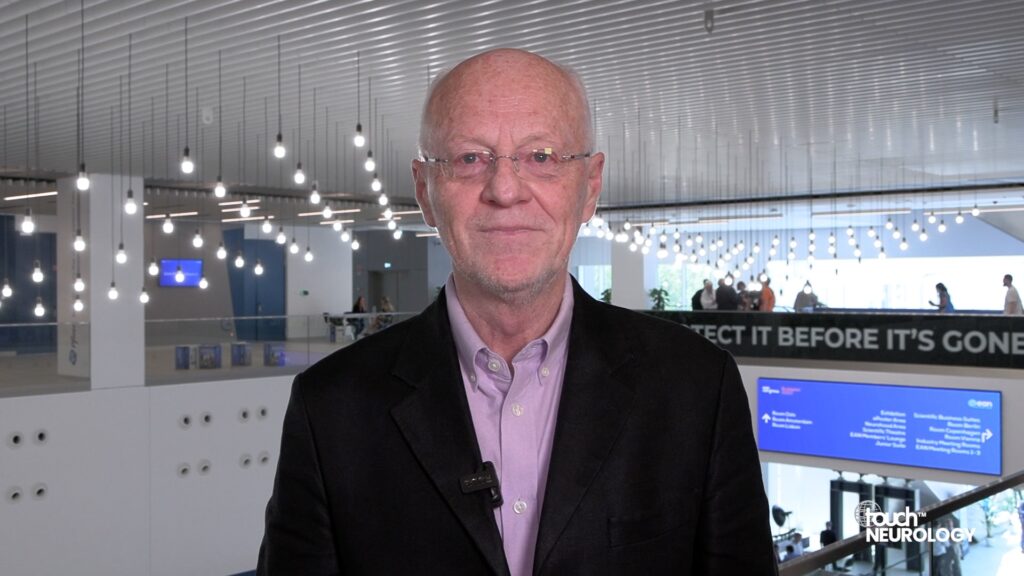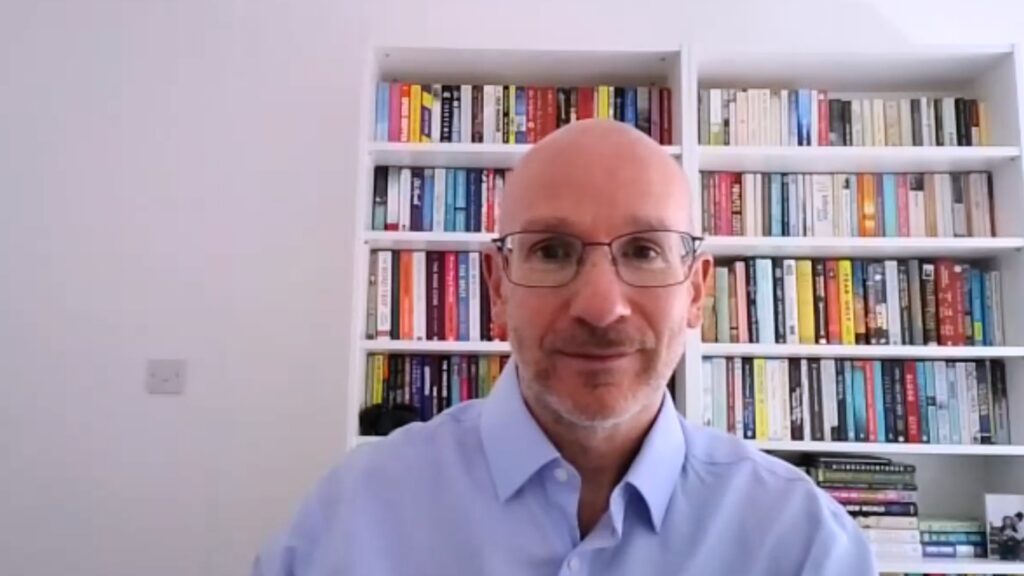Rob Music, CEO, The Migraine Trust, United Kingdom
 Rob Music joined The Migraine Trust as Chief Executive in February 2021. He has over 30 years’ experience working for healthcare charities, starting out as a fundraiser, and before his current position he held similar roles at Jo’s Cervical Cancer Trust and Endometriosis UK. Despite being so common migraine has been poorly invested in and the patient pathway can be a long and challenging one. Rob is determined to see improvements in migraine care, treatments and access for the 10m living with migraine, and for the charity to be a key voice in calling for positive change.
Rob Music joined The Migraine Trust as Chief Executive in February 2021. He has over 30 years’ experience working for healthcare charities, starting out as a fundraiser, and before his current position he held similar roles at Jo’s Cervical Cancer Trust and Endometriosis UK. Despite being so common migraine has been poorly invested in and the patient pathway can be a long and challenging one. Rob is determined to see improvements in migraine care, treatments and access for the 10m living with migraine, and for the charity to be a key voice in calling for positive change.
The Migraine Trust works to help people affected by migraine. It is the only UK migraine charity providing information and support, campaigning for awareness and change, and funding and promoting research. The Migraine Trust has been leading and bringing the migraine community together to change this since 1965.
Summary
Migraine is a neurological condition affecting 1 in 10 children and young people, yet is often overlooked. To ensure children with migraine in the United Kingdom (UK) are better supported and able to live the lives they want, change is urgently needed in both education, healthcare settings and the wider society. This article highlights research conducted by The Migraine Trust, in the report ‘Dismissed for too long: The impact of migraine on children & young people’, it also discusses health education and government guidance across the UK.
Introduction
Migraine is a severe and painful long-term brain disorder. People with migraine have migraine attacks, which can be a whole-body experience. Migraine affects 10 million people in the UK and is too often dismissed as ’just a headache’, despite the huge impact it can have on all aspects of a person’s life, from school and work to mental health.1
While migraine can have a significant impact on the lives of adults, its impact on children can be even more severe. An estimated one in ten children live with migraine.2 This potentially limits their development and ability to take part in education, social activities, and other important parts of growing up. It can also be hard for children to understand and explain their pain, and there are fewer treatment options for them than adults.
Common symptoms of a migraine attack include head pain; changes to eyesight such as seeing flashing lights; sensitivity to light, sound and smells; fatigue; and feeling sick and being sick. Four in 100 children are affected by abdominal migraine, which involves severe stomach pain instead of head pain.3 When a child has a migraine attack, they may not be able to function normally.
Dismissed for too long. The impact of migraine on children & young people – Summary of the Report
Research reported by The Migraine Trust, entitled ‘Dismissed for too long: The impact of migraine on children & young people’, has shown a need for better understanding of how migraine impacts children and for tailored information, guidance and support for children and young people of different ages who have migraine in the UK.4 The report highlighted that children and young people, particularly younger children, often need help in explaining their migraine and need to be included in discussions about their treatment. It also found there needs to be improved communication between health services and schools/colleges.4,5
- 90% of children and young people said their migraine made schoolwork harder, with 70% of parents/carers concerned about the impact of migraine on their child’s education.
- In terms of healthcare, 33% of children surveyed by The Migraine Trust said their migraine treatment was poor, 30% said fair, 23% said good and only 8% said very good. None described it as excellent. Children need to be talked to, not at, about their migraine. The Royal College of Paediatrics and Child Health (RCPCH) has previously found that children/young people say that good communication with health services is important to them.5
- Crucially, research also suggests that children who feel adequately involved in conversations about their health are more likely to adhere to treatments, making interventions more effective. However, evidence also suggests that more needs to be done to meaningfully engage children and that child-centred practice is not well-defined.6
- There is also a strong relationship between migraine and mental health. Migraine can lead to anxiety and anxiety can trigger migraine, so there is a complex interplay between the two conditions. Stress and anxiety are a significant migraine trigger for children, particularly those dealing with difficult life circumstances or exam stress.7,8 Recent research found associations between children’s migraine and symptoms of anxiety and depression.9 Children need better communication about their migraine, mental health and how to manage them to ensure they can live life to the full. This may include information on pacing and preventative support. This approach can be encouraged in health services, both in schools and in guidance for parents/carers.
- Most children with migraine don’t need to see a specialist. They just need good care, support and information from their GP and in school. We know there is a lack of understanding of and training around migraine in primary care, and this is especially true when it comes to children’s migraine.
- It is important that parents/carers, schools and GPs are aware of medication overuse headache and how it is caused.10 However, research also suggests that GPs are reluctant to prescribe more appropriate preventive medications to children, even if a child with migraine would benefit from them.
- Migraine presents an extra challenge for schoolchildren, yet only 36% say they feel their school has the information to help them manage their condition. When asked if they have been taught about migraine at school, 97% said no. It is clear that school staff need more information about migraine to help them support children with the condition.
- When asked how often a child tells them that they are having a migraine attack, 16% of school staff said once a week, 14% said several times a week, 11% said once a month, 3% said once a day and 2% several times a day, stated in the report. Despite this, 76% felt their school did not have the information, resources and processes to help children with migraine.
Health education
Health education is mandatory in state-funded primary and secondary schools in England. Department for Education (DfE) guidance suggests that schools must publish policies for this online and make them available to anyone free of charge. Schools are also advised to share examples of resources to help them engage and consult with parents. There is no mention of headache or migraine in the relevant DfE publication, Relationships Education, Relationships and Sex Education (RSE) and Health Education: Statutory guidance for governing bodies, proprietors, head teachers, principals, senior leadership teams, teachers, although there is an emphasis at primary and secondary level on the importance of a healthy lifestyle.11 The DfE also provides statutory guidance on physical health and mental wellbeing in primary and secondary schools, but does not cover specific conditions such as headache or migraine in detail.12
Government Guidance
Government guidance under the Children and Families Act 2014 stresses that school pupils with medical conditions should be properly supported so that they have full access to education, including school trips and physical education. Governing bodies must ensure that arrangements are in place in schools to support pupils with medical conditions.13 If migraine persists for more than 12 months, it can be considered a disability under the Equality Act 2010, creating a duty for schools to make reasonable adjustments. 14,15
In Scotland, Scottish Government general guidance on health and wellbeing in schools does address lifestyle factors and emphasises mental health but does not appear to address headache or migraine.15 The 2017 draft guidance for Scottish NHS boards, education authorities and schools on supporting children and young people with healthcare needs in schools briefly mentions headache, but in the context of guidance around parental permission on administering medication.16
In Wales, 2017 government guidance on health and wellbeing for learners emphasised physical and mental health, reasonable accommodation, and the need for local authorities to “make arrangements to promote cooperation between various bodies or persons, with a view to improving, among other things, the well-being of children in relation to their physical and mental health”. The document does not mention migraine or headache specifically but did link to the former charity Migraine Action17 as one of several resources.18 In Northern Ireland, there is government guidance that helps schools to form their own medicines policies and procedures to ensure that pupils with medication needs receive appropriate care and support, though it does not mention specific conditions.19
Conclusions
Migraine is a serious issue for many young people, affecting as many as one in ten children in terms of the quality of healthcare they receive, their experience of school and educational attainment, and their family life. However, there are a variety of steps that should be taken to improve migraine diagnosis at an early age, standards of care, and reasonable accommodation in education settings.
References:
- The Migraine Trust. What is Migraine? 2021. Available at: migrainetrust.org/understand-migraine/what-is-migraine/ (accessed 23 November 2022).
- Barnes N. Migraine headache in children. British Medical Journal (BMJ) Best Practice. Available at: bestpractice.bmj.com/topics/en-gb/678 (accessed 23 November 2022).
- The Migraine Trust. Abdominal migraine. 2021. Available at: migrainetrust.org/understand-migraine/types-of-migraine/abdominal-migraine/ (accessed 23 November 2022).
- The Migraine Trust. Dismissed for too long. The impact of migraine on children & young people. 2022. Available at: migrainetrust.org/wp-content/uploads/2022/08/Dismissed-for-too-long-The-impact-of-migraine-on-children-and-young-people-September-2022.pdf (accessed 23 November 2022).
- Royal College of Paediatrics and Child Health. What does the domain “communication” mean to children and young people. 2018. Available at: rcpch.ac.uk/sites/default/files/2019-02/cyp_progress_domain_communication.pdf (accessed 23 November 2022).
- O’Reilly M, Karim K. How can local research improve the care and communication with children? 2016. Poster presented at the Local Leicestershire Partnership NHS Trust Research Fair, Leicester, UK.
- Maleki N, Becerra L & Borsook D. Migraine: Maladaptive Brain Responses to Stress. Headache. 2012;52 (Suppl 2), 102–106
- The Cleveland Clinic, ‘Migraines in Children and Adolescents’. Last updated April 2022. Available at: my.clevelandclinic.org/health/diseases/9637-migraines-in-children-and-adolescents
- Falla et al., JAMA Pediatrics (2022), ‘Anxiety and Depressive Symptoms and Disorders in Children and Adolescents With Migraine: A Systematic Review and Meta-Analysis’
- The Migraine Trust. Medication overuse headache. 2021. Available at: migrainetrust.org/understand-migraine/types-of-migraine/medication-overuse-headache/ (accessed 23 November 2022).
- Department for Education. Introduction: Relationships Education, Relationships and Sex Education (RSE) and Health Education. Available at: www.gov.uk/government/publications/relationships-education-relationships-and-sex-education-rse-and-health-education/physical-health-and-mental-wellbeing-primary-and-secondary (accessed 23 November 2022).
- Department for Education. Statutory guidance: Physical health and mental wellbeing (Primary and secondary. 2021. Available at: gov.uk/government/publications/relationships-education-relationships-and-sex-education-rse-and-health-education/physical-health-and-mental-wellbeing-primary-and-secondary (accessed 23 November 2022).
- Department for Education. Supporting pupils at school with medical conditions: Statutory guidance for governing bodies of maintained schools and proprietors of academies in England. 2014. Available at: assets.publishing.service.gov.uk/government/uploads/system/uploads/attachment_data/file/306952/Statutory_guidance_on_supporting_pupils_at_school_with_medical_conditions.pdf (accessed 23 November 2022).
- National Migraine Centre. Migraine: Advice to schools. 2022. Available at: nationalmigrainecentre.org.uk/migraine-and-headaches/migraine-and-headache-factsheets/migraine-advice-to-schools/ (accessed 23 November 2022).
- Scottish Government. Health & Wellbeing in Schools. 2020. Available at: gov.scot/policies/schools/wellbeing-in-schools/ (accessed 23 November 2022).
- Scottish Government. Supporting children and young people with healthcare needs in schools: Guidance for NHS boards, education authorities and schools. 2017. Available at: gov.scot/binaries/content/documents/govscot/publications/advice-and-guidance/2017/12/supporting-children-young-people-healthcare-needs-schools/documents/00529511-pdf/00529511-pdf/govscot%3Adocument/00529511.pdf (accessed 23 November 2022).
- Migraine Action merged into The Migraine Trust in 2019
- Welsh Government. Supporting learners with healthcare needs. 2017. Available at: gov.wales/sites/default/files/publications/2018-12/supporting-learners-with-healthcare-needs.pdf (accessed 23 November 2022).
- Northern Ireland Department for Education. Support for pupils with medication needs. 2020. Available at: education-ni.gov.uk/articles/support-pupils-medication-needs (accessed 23 November 2022).
Article information:
Acknowledgements: Copyediting support has been provided by Touch Medical Media.
Disclosures: Robert Music is the CEO of The Migraine Trust, and has nothing to disclose in relation to this article.
Access: This article is freely accessible at touchNEUROLOGY.com © Touch Medical Media 2022









